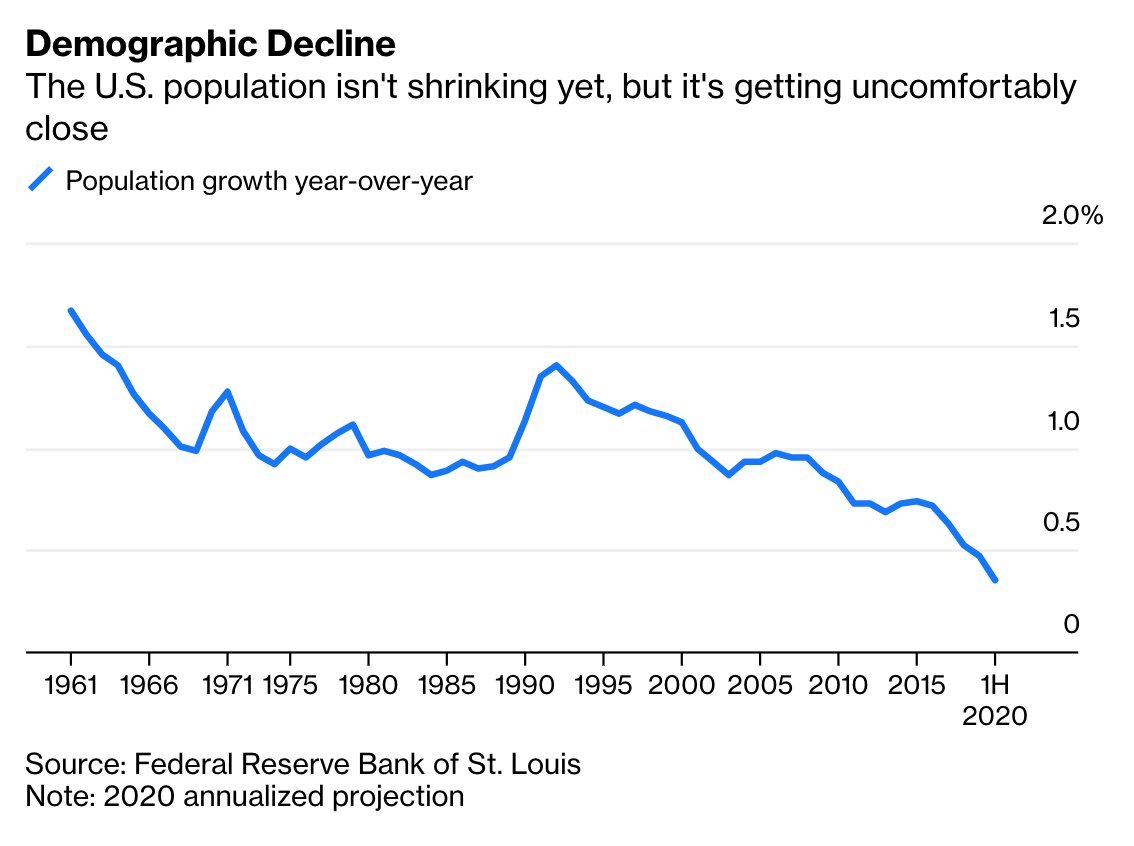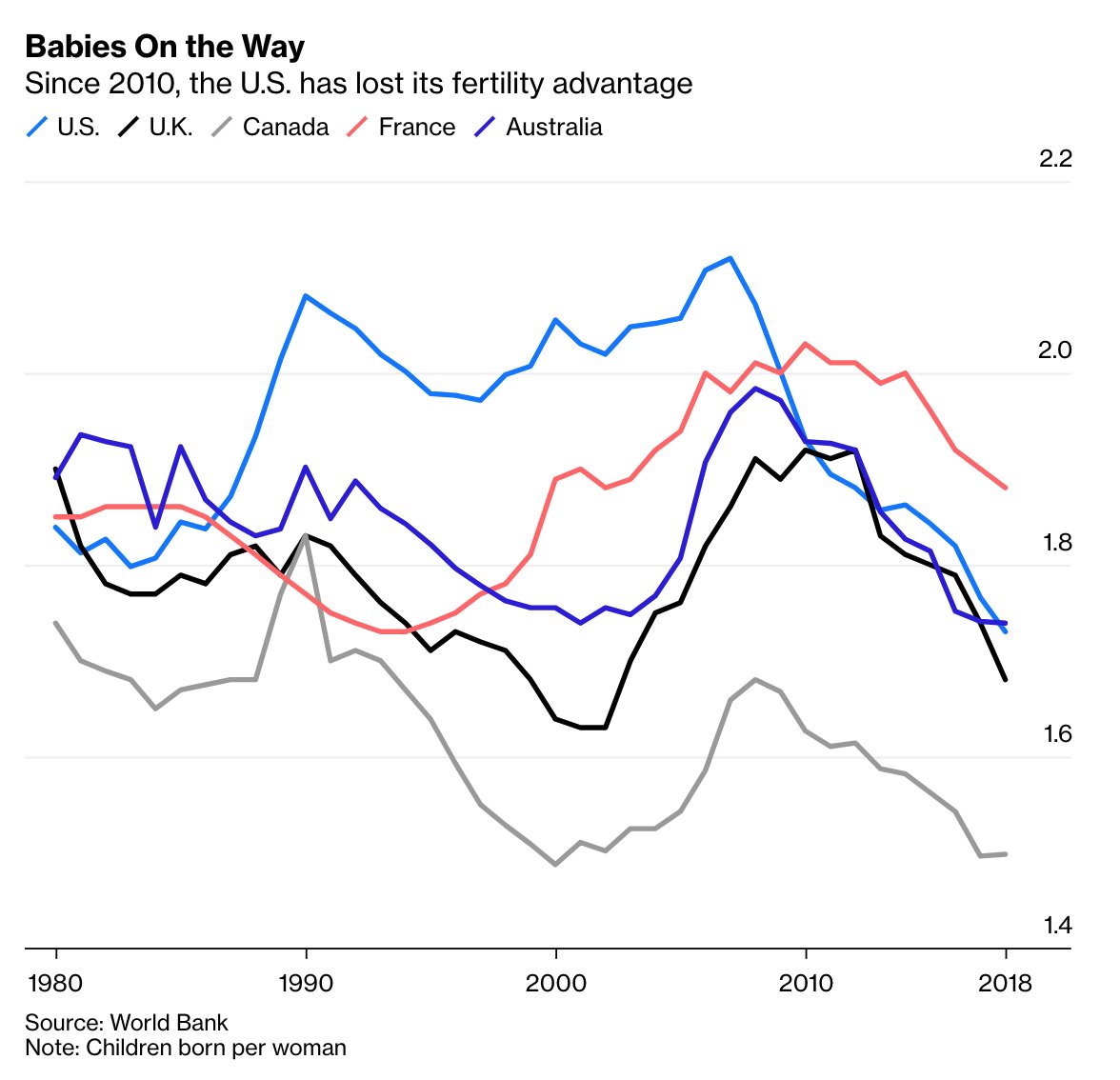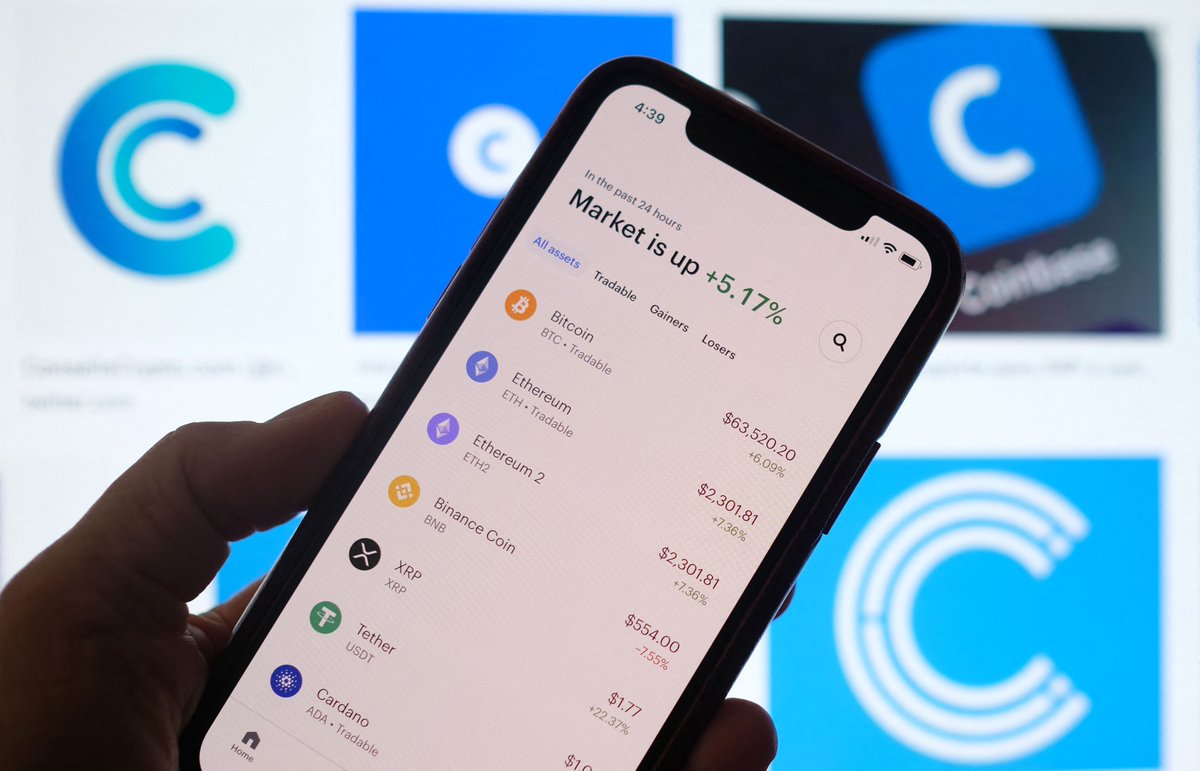
Fifteen years ago, population growth was one of America’s core advantages because it had a high fertility rate close to the replacement rate of 2.1 children per woman.
Add copious immigration on top of that, and our demographic future seemed assured trib.al/G8gA0SY
Add copious immigration on top of that, and our demographic future seemed assured trib.al/G8gA0SY
Projections had the U.S. increasing its size relative to its main potential rival, China, over the course of the century. The country’s youthfulness implied a bright future for its:
💰Economy
📊Asset markets
⚕️Solvency of its pension & health care systems
trib.al/G8gA0SY
💰Economy
📊Asset markets
⚕️Solvency of its pension & health care systems
trib.al/G8gA0SY

This vision of demographic dominance has since gone up in smoke.
The 2020 Census indicates that the population is growing more slowly than at any time since WWII. It's not shrinking yet, but if we don’t correct course, we are certain to stagnate in size trib.al/G8gA0SY
The 2020 Census indicates that the population is growing more slowly than at any time since WWII. It's not shrinking yet, but if we don’t correct course, we are certain to stagnate in size trib.al/G8gA0SY

Why is this happening?
Ultimately there are two ways a nation’s population can grow: Having babies, or taking in immigrants. The U.S. used to be very good at both of these things, but no longer trib.al/G8gA0SY
Ultimately there are two ways a nation’s population can grow: Having babies, or taking in immigrants. The U.S. used to be very good at both of these things, but no longer trib.al/G8gA0SY

By 2018 the U.S. total fertility rate has fallen to around 1.73, in line with the likes of Denmark and the U.K.
And that was before Covid-19. Some estimate fertility is now down to 1.6, similar to Germany trib.al/G8gA0SY
And that was before Covid-19. Some estimate fertility is now down to 1.6, similar to Germany trib.al/G8gA0SY

Some of this is happening for good reasons. For example, the teen birth rate has fallen enormously:
🗓️1990: 61.8 births per 1000 teenage girls
🗓️2018: 17.4 births per 1000 teenage girls
That’s a positive development; we don’t want kids having kids trib.al/G8gA0SY
🗓️1990: 61.8 births per 1000 teenage girls
🗓️2018: 17.4 births per 1000 teenage girls
That’s a positive development; we don’t want kids having kids trib.al/G8gA0SY

Another positive cause of fertility decline has been the assimilation of Hispanic Americans to U.S. fertility norms.
In 2007, Hispanic American women had about 67% more kids than their White counterparts; by 2018, the difference had shrunk to under 20% trib.al/G8gA0SY
In 2007, Hispanic American women had about 67% more kids than their White counterparts; by 2018, the difference had shrunk to under 20% trib.al/G8gA0SY

The fertility drop isn’t completely benign.
The average number of children women say they want has actually risen, to 2.6. That implies that American parents lack the financial resources to have as many kids as they would like trib.al/G8gA0SY
The average number of children women say they want has actually risen, to 2.6. That implies that American parents lack the financial resources to have as many kids as they would like trib.al/G8gA0SY

On immigration, too, the once-mighty U.S. has faltered. Immigrants are still coming in, but at a much lower level relative to population.
With immigration and fertility both down, the U.S. is projected to age rapidly trib.al/G8gA0SY
With immigration and fertility both down, the U.S. is projected to age rapidly trib.al/G8gA0SY

Here’s why that matters: Old people stop being able to work, which means they must be supported by the efforts of younger, working people.
As the population ages, an increasing financial and physical burden is put on the young trib.al/G8gA0SY
As the population ages, an increasing financial and physical burden is put on the young trib.al/G8gA0SY

In 2010, the number of working-age adults per older adult was 4.8; by 2060 it’s projected to be only half that — doubling the economic burden on the young.
This, and a reduction in productivity growth, will hold down living standards trib.al/G8gA0SY
This, and a reduction in productivity growth, will hold down living standards trib.al/G8gA0SY

For many, living standards are also about national greatness.
As the fourth-largest country in the world, the U.S. enjoyed clear advantages over smaller rivals. But now, the U.S. has a new rival — China — whose population is four times our own bloomberg.com/opinion/articl…
As the fourth-largest country in the world, the U.S. enjoyed clear advantages over smaller rivals. But now, the U.S. has a new rival — China — whose population is four times our own bloomberg.com/opinion/articl…
Opponents of population growth argue that it’s bad for the planet. But this isn’t necessarily true; over the past few decades, even as the U.S. population has continued to grow:
🌊Fresh water use has fallen
☁️CO2 emissions dropped
💡Energy use stayed flat
trib.al/G8gA0SY
🌊Fresh water use has fallen
☁️CO2 emissions dropped
💡Energy use stayed flat
trib.al/G8gA0SY

A national population policy would be wise:
➡️Allow in more immigrants
➡️Lower the cost of having children
Happily, Biden is making steps towards doing this
trib.al/G8gA0SY
➡️Allow in more immigrants
➡️Lower the cost of having children
Happily, Biden is making steps towards doing this
trib.al/G8gA0SY

• • •
Missing some Tweet in this thread? You can try to
force a refresh














